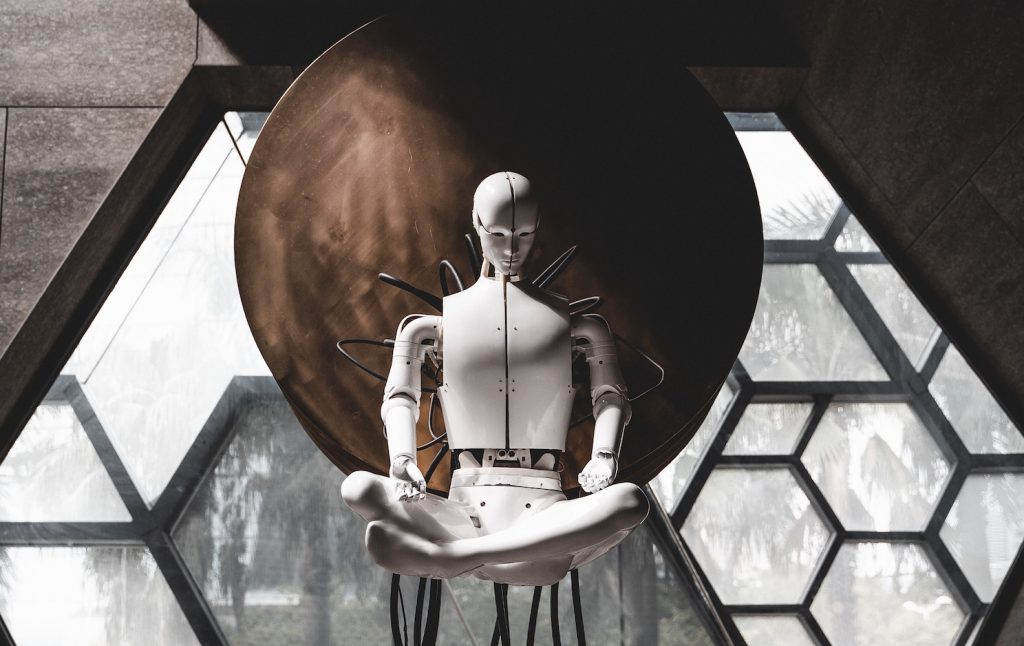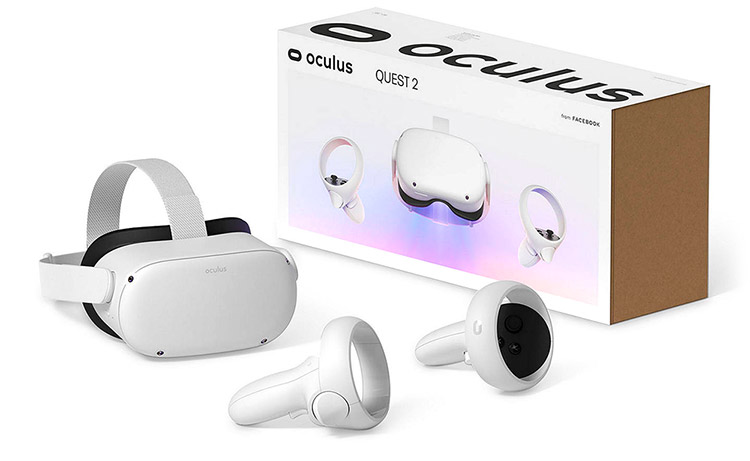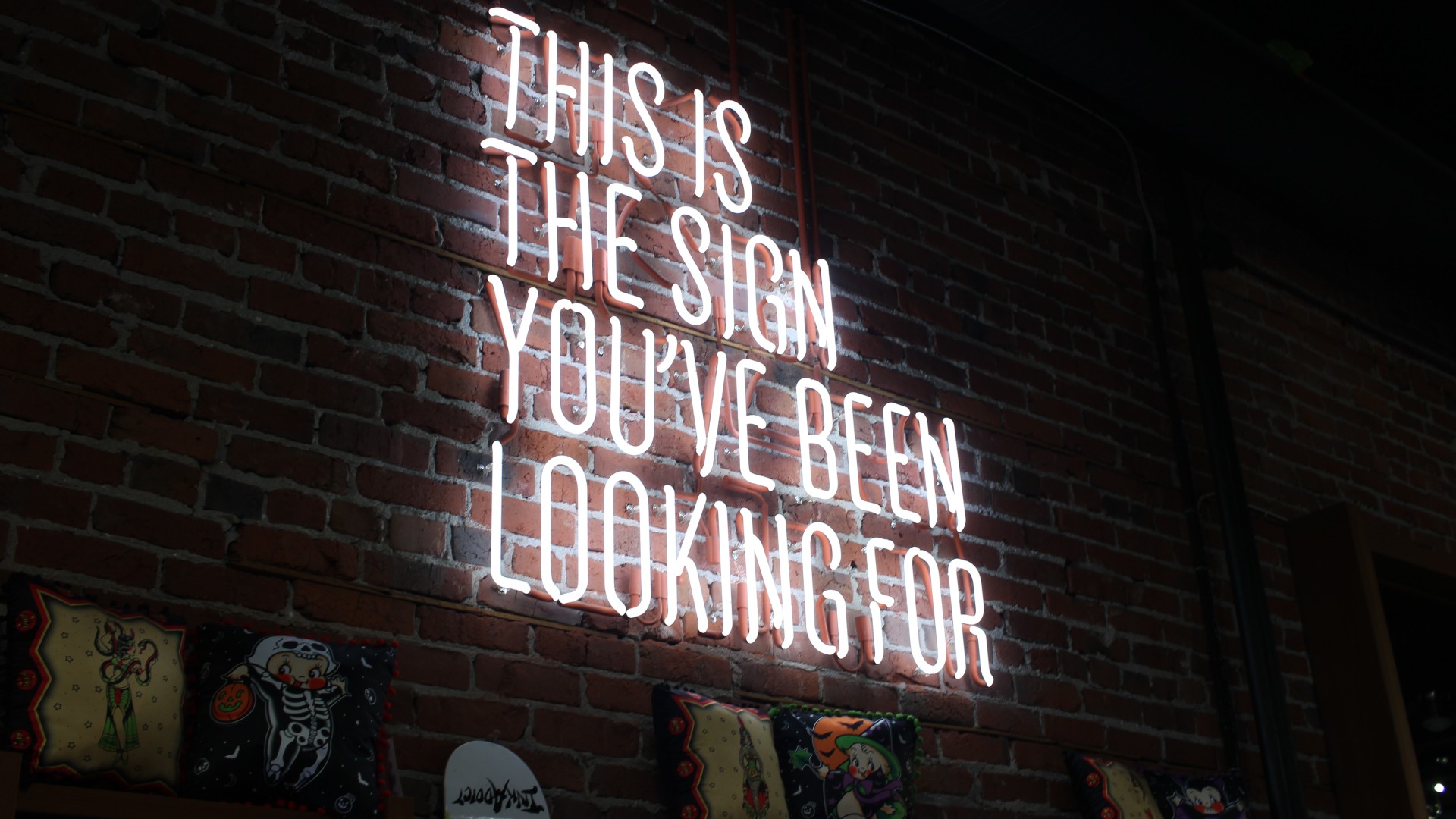Hi. There’s a good chance you’ve heard about the metaverse by now. And if you did, you may have heard about digital assets, Web3 and virtual reality too. These terms, along with plenty of other futuristic-sounding words are joining our vocabulary every day, so it’s easy to lose track of what’s what.
And that’s where this handy pocket-sized metaverse dictionary comes in.
What is a blockchain? Why are people so bent out of shape about their MMORPG? And who’s Oculus and what’s their ‘Quest’?… Let us explain:

Artificial intelligence / AI: A machine with human-like cognitive skills, such as the ability to absorb information, solve problems, or respond to natural language. While robots are often held up as the prime example of an AI it’s more usual for AI to exist as computer programs with no physical form.
Augmented reality: A real world environment is enhanced by virtual objects. Where the real world is a backdrop and digital images are added on top, with the combination appearing seamless when viewed through a smartphone or goggles. A good example is Pokémon Go, which adds Pokémon to a natural landscape being viewed by your smartphone’s camera. See also Mixed Reality and Extended Reality.
Avatar: A digital and graphical representation of a real-life person. This can be a 2D picture or an animated, walking-and-talking digital figurine. Avatars are mostly used in games and social media. The user decides what the avatar looks like.
Blockchain: A digitally shared and decentralized ledger that keeps track of transactions. Its list of records (blocks) are linked through cryptography and cannot be altered.
Blockchain gaming: A video game that uses blockchain technology to incorporate the use of cryptocurrencies and/or NFTs in the gameplay. Also known as crypto gaming, NFT gaming, or play-to-earn gaming.
Creator economy: Refers to a large group of social media influencers, YouTubers, and bloggers who earn money through popular social media platforms such as YouTube, TikTok, Instagram, and Twitch.
Cryptocurrency: A digital and decentralized valuta such as Bitcoin, Ethereum, Ripple, and Cardano. Cryptocurrencies use cryptography for transactions (see ‘Blockchain’).
Cryptowallet: A digital wallet to store cryptocurrencies. The currency is secured through a private key.
Cyberspace: The virtual world, also explained as the global communication network that’s made possible by computers and the internet.
Decentralization: Power is distributed away from a central authority. It is often thought that the metaverse should be decentralized, not governed by a person or small group of people.
DAO: A decentralized autonomous organization that is owned by its members. The rules and transactions are managed on the blockchain.
Decentraland: A metaverse platform that builds on the principle of a community-driven virtual space.
Digital asset: A virtual item with distinct value and usage rights. It can exist in any format, such as a written document, audio, or a photograph. Blockchain technology has made it easier to create digital assets.
Digital Twin: A virtual counterpart of an object that exists in the real world. Can be used in a computer simulation of a real life event or action, for example.
Extended Reality: Refers to all of the different types of ‘Realities’, including every degree of ‘physical world meets virtual world’. See also Augmented Reality and Mixed Reality.
Gamification: Using gaming elements in a non-gaming situation. Think of the use of avatars, point systems, and achievements. Some think that the metaverse will increase the gamification of our digital activities.
Meat Space: The real world. Where humans exist as flesh and bone and everything in between.
Meta: The company formerly known as Facebook. The name Meta reflects their metaverse ambitions.
Metaverse: A digital universe consisting of interconnected 3D spaces that allow people to work, shop, and spend leisure time. This is usually done through avatars or by wearing VR headsets. The discussion whether or not we have such a metaverse, or whether we will have one in the future, is still ongoing.
Mining: A way to earn cryptocurrencies without having to buy them. Using the Proof of Work method, a computer needs to solve complex mathematical puzzles to verify a new ‘block’ on the blockchain.
Minting: Similar to mining, but uses the Proof of Stake method. Crypto- or NFT owners stake (lock) their assets, after which they may be selected for a transaction validation process, creating new coins.
MMORPG: Stands for Massive Multiplayer Online Role-Playing Game. Since MMORPG’s feature open worlds wherein players can live freely through their avatars, they’re often compared to the idea of the metaverse.
Multiverse: The idea of multiple universes existing at the same time. It’s often used to counter the idea of the metaverse: instead of one massive universe, the multiverse supports the idea of having many digital universes with their own rulesets.
Mixed reality: A combination of virtual reality and augmented reality. Mario Kart Live: Home Circuit is a good example, as this game combines a physical race track with a digital game. See also Augmented Reality and Extended Reality.
NFT / Non-Fungible Token: A unique digital asset with proof of ownership thanks to the use of blockchain technique. Items on metaverse platforms or items in blockchain games are often traded as NFT’s.
Oculus Quest 2: One of the most well-known virtual reality headsets, made by Facebook Technologies (Meta) and the subject of a recent $100 price hike. Other examples of VR headsets are the Sony PlayStation VR and Microsoft’s HoloLens.

Sandbox: Can refer to metaverse platform The Sandbox or to a certain type of game that allows players the freedom to shape things in their digital open world.
Virtual reality: A simulation of the real world, but not necessarily a digital copy. A virtual reality experience is usually paired with a VR headset, allowing the user to move and see as if they’re part of a 3D world.
Web3 / Web 3.0: The idea of a new generation of the internet. Unlike Web2, Web3 is decentralized, not governed by big tech companies, and based on blockchain technology.
As a freelance games journalist, Marloes has written for many of the world’s biggest games and entertainment websites. When she’s not writing, you can usually find her somewhere in Novigrad, Whiterun, or living the catgirl life in FFXIV.



































